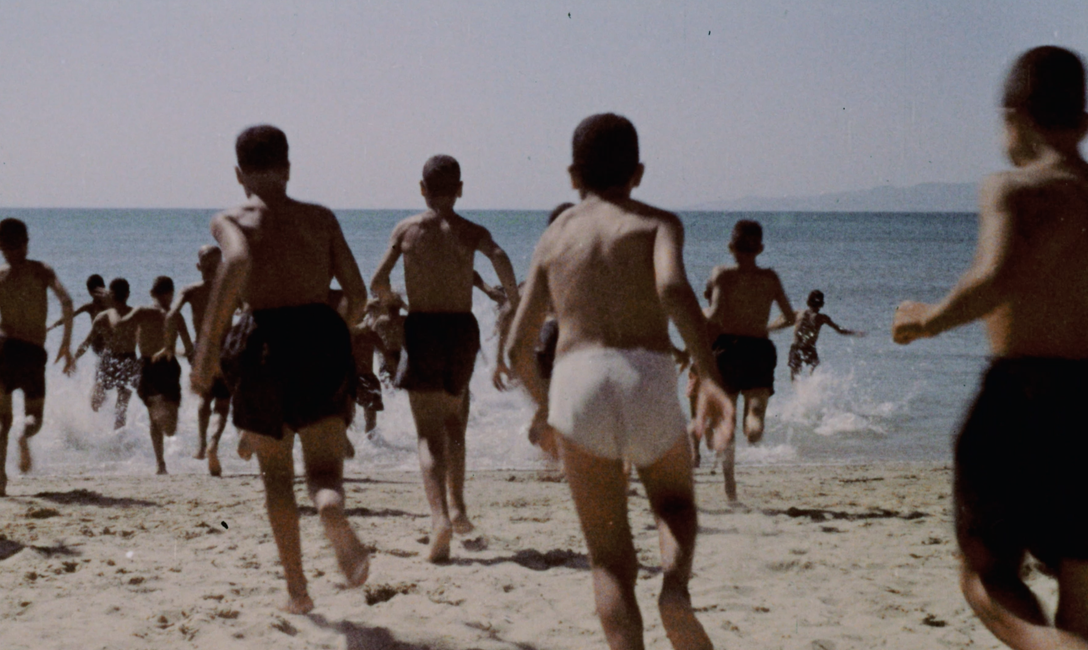past event
Film Screening: Film and the Algerian Revolution
Sunday 4 Feb 2024
3:00pm

J’ai huit ans (I Am Eight), Yann Le Masson, Olga Poliakoff, 1961, film still.
On Sunday 4 February at 3pm join us for a special screening of archival short films from the time of the Algerian War of Independence. Afterwards join us with Te Waka Hourua for a wānanga using the films as a starting point for conversation.
Djazaïrouna (Algeria Our Country), Djamel Chanderli, Mohamed Lakhdar-Hamina (and others), 1960. Courtesy of the Centre National de la Cinématogprahie et de l’Audiovisuel Algérien.
18 minutes.
This montage film was destined to enlighten the international community on the objectives of the Algerian resistance fighters. The footage shot by different filmmakers and operators (René Vautier, Djamel Chanderli, and others) was edited in Belgrade, ex-Yugoslavia, because it was impossible to do so in France. Conceived as an anti-colonialist plea, advocating for the struggle for independence of the Algerians, as well as for the Algerian National Liberation Front (FLN) and the National Liberation Army (ALN), it is an effective document to testify to the violence of the colonial order.
Les Fusils de la Liberté (The Guns of Freedom), Djamel Chanderli, Mohamed Lakhdar-Hamina, 1961. Courtesy of the Centre National de la Cinématogprahie et de l’Audiovisuel Algérien.
27 minutes.
The script of this fiction with allegorical overtones was written by Serge Michel, a French journalist who joined the Algerian National Liberation Front (FLN) and the Provisional Government of the Algerian Republic (GPRA) in Tunis, Tunisia. Les fusils de la liberté (Guns of Freedom) depicts Algerian fighters carrying weapons and ammunition, moving unnoticed among the population in the south of the country. This theme of "peoples in movement" has been used in several texts and films of the FLN.
La distribution de pain (Bread Delivery), Cécile Decugis, 1957.
14 minutes.
Shot in Tunisia near the border with Algeria in 1957 by Cecile Decugis with French-Tunisian producer Hedy Ben Khelifa, the film was conceived to be shown at the United Nations to denounce the life conditions of Algerian refugees (as well as displacements caused by the war). In 2011, the director revisited her 1957 film, adding a new commentary that she reads in voice-over. Cécile Decugis, who at the time was an editor for Godard and Rohmer among others, was arrested and incarcerated in Paris while working on the editing of François Truffaut's Tirez sur le pianiste and served several years in the women's prison of Petite Roquette for aiding the Algerian National Liberation Front (FLN).
J’ai huit ans (I Am Eight), Yann Le Masson, Olga Poliakoff, 1961. Courtesy of Cinémathèque de Toulouse.
10 minutes.
This short film directed by Yann le Masson and Olga Poliakoff gives voice to Algerian children, war orphans who have taken refuge in Tunisia. They express the shock of war and their sometimes traumatic experience through their drawings, which bear the marks of bombing, combat, resistance, and repression. The film was banned for over 10 years in France.
Programme curated by Olivier Hadouchi and Adel Ben Bella.
Total screening time: 69 minutes.
